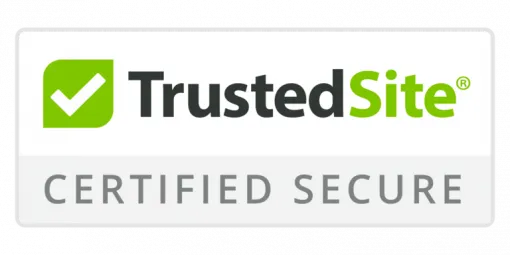Understanding the importance of incident response services for data breaches is crucial for anyone looking to offer this as a side hustle. Data breaches often go undetected for months, even years, giving cyber attackers ample opportunity to exploit sensitive information. When a breach is eventually discovered, every second becomes critical. Here's how you can start offering incident response services to mitigate damage and restore operations efficiently.
Step 1: Develop an Incident Response Plan
Before you can offer your services, you need to have a robust incident response plan. This will serve as a guideline for identifying the scope of the incident, containing the breach, eradicating threats, and recovering systems.
Make sure your plan also covers compliance with regulatory requirements and maintaining transparency with affected parties.
Step 2: Gain the Necessary Skills and Certifications
Equip yourself with the necessary skills and certifications, such as Certified Information Systems Security Professional (CISSP) or Certified Information Security Manager (CISM).
These credentials will not only boost your credibility but also ensure you are well-prepared to handle data breaches effectively.
Step 3: Build a Toolkit
A good incident response toolkit is essential. This should include software for detecting breaches, tools for analyzing compromised systems, and utilities for eradicating threats.
Familiarize yourself with industry-standard tools like Wireshark, Splunk, and Nessus.
Step 4: Offer a Range of Services
Your incident response services can include detection and analysis of breaches, containment and eradication of threats, recovery of operations, and post-incident reviews.
Offering a comprehensive package will make your services more appealing to potential clients.
Step 5: Establish a Pricing Model
Determine how you will charge for your services. You can opt for hourly rates, flat fees for specific tasks, or retainer models where clients pay a monthly fee for continuous monitoring and quick response.
Step 6: Promote Your Services
Market your incident response services through online platforms, social media, and networking events.
Highlight the importance of having an incident response plan and how your services can help businesses mitigate damage and quickly restore operations.
Step 7: Stay Updated
Cyber threats are constantly evolving, so it's crucial to stay updated on the latest trends and technologies.
Participate in webinars, attend conferences, and read industry publications to keep your skills and knowledge current.
By following these steps, you can effectively offer incident response services as a side hustle, helping businesses protect their sensitive information and quickly recover from data breaches.
Understanding the Threat Landscape
Safeguarding Your Side Hustle: Navigating the Threat Landscape
To protect your side hustle, it's crucial to understand the complex and ever-evolving threat landscape of data breaches. This involves staying up-to-date on the tactics, techniques, and procedures (TTPs) employed by malicious actors.
Staying ahead in this realm requires constant monitoring and analysis of the latest cyber threats and evolving tactics used to compromise small business operations and steal sensitive information.
This includes understanding the motivations, intentions, and capabilities of threat actors, as well as the methods they use to gain unauthorized access to your side hustle's systems.
Key Components of Incident Response
You're now ready to explore the essential elements of managing a side hustle.
To effectively run your side business, you need to identify the key areas of focus and quickly determine what resources you need.
Identifying Incident Scope
Determining the scope of an incident in your side hustle is a crucial step in managing any disruptions effectively. By identifying all affected systems, data, and stakeholders, you can contain and mitigate the impact efficiently. You'll need to assess the incident based on its type, severity, and impact on your side hustle operations. This classification will help you understand the breadth of the issue and prioritize your response efforts.
As you identify the incident scope, you should also conduct an impact assessment to gauge the extent of the damage. This involves analyzing the affected systems, data, and stakeholders to comprehend the potential consequences. You'll need to consider factors such as data sensitivity, system criticality, and business operations to determine the overall impact on your side hustle.
Containment Strategies
Effective containment strategies are critical in limiting the spread of setbacks in your side hustle. These strategies involve taking swift action to address issues, secure data, and block any potential disruptions. You'll want to quickly identify and isolate problem areas within your operations to prevent further damage.
Process segmentation is essential in this context, as it allows you to isolate affected elements without disrupting your entire business. By breaking down your side hustle into manageable segments, you can limit the spread of issues or unauthorized actions.
In addition to isolating problems, you'll want to employ data encryption to prevent data breaches. Data encryption ensures that even if unauthorized parties gain access to your sensitive information, they won't be able to exploit it.
Implement robust encryption protocols, such as full-disk encryption and encryption for data in transit, to safeguard critical data. By combining swift issue detection, process segmentation, and data encryption, you'll effectively contain potential problems and prevent unintended damage or data exposure in your side hustle.
Regulatory Requirements and Compliance
When developing your side hustle incident response plan, it's crucial to ensure it adheres to relevant regulatory requirements and compliance standards, such as GDPR, HIPAA, or PCI-DSS.
You must also familiarize yourself with the specific reporting requirements for incidents, including the types of breaches that must be reported and the timeline for doing so.
Meeting Compliance Standards
To mitigate the impact of a data breach in your side hustle, ensure your incident response plan aligns with relevant regulatory requirements and compliance standards such as GDPR, HIPAA, or PCI-DSS that may apply to your business activities.
Familiarize yourself with the specific compliance frameworks relevant to your side hustle, including the requirements for incident response, data protection, and breach notification.
Conduct regular risk assessments to identify vulnerabilities and confirm that your incident response plan is tailored to address potential threats specific to your side hustle.
Reporting Incident Requirements
When managing a side hustle that involves handling personal data, it's crucial to promptly report any data breaches to relevant regulatory bodies and affected parties, as mandated by compliance standards such as GDPR, HIPAA, or PCI-DSS. These standards impose strict incident reporting requirements to protect data integrity and privacy.
Here's what you need to consider:
- Breach Notifications: Inform affected individuals and organizations within the required timeframe (e.g., 72 hours under GDPR). This ensures transparency and allows those affected to take necessary precautions.
- Data Breach Details: Provide specific information about the breach, such as the types of data compromised and the number of individuals affected. Clear communication helps in assessing the impact and responding appropriately.
- Regulatory Body Notification: Notify relevant authorities, such as the Attorney General's office or the national data protection authority, according to the applicable legislation (e.g., HIPAA, PCI-DSS). Compliance with these requirements is essential for maintaining the credibility of your side hustle.
- Post-Breach Procedures: Outline procedures to mitigate future incidents, demonstrating compliance and proactive incident response planning. This not only helps in preventing future breaches but also builds trust with your customers and stakeholders.
Effective Communication Strategies
Effective communication during a side hustle launch involves rapidly disseminating critical information to key stakeholders, including potential customers, partners, and relevant online communities.
You must implement a stakeholder engagement strategy to build transparency and trust. This includes identifying key stakeholders, determining their communication needs, and establishing a channel for updates and feedback.
You'll also need a communication plan that outlines procedures for sharing information about your side hustle. This plan should cover communication protocols, messaging, and timelines to guarantee consistent and timely communication.
When engaging with stakeholders, be clear, concise, and honest about your side hustle's nature, purpose, and benefits. Avoid using technical jargon or overselling your venture.
Remember that stakeholder engagement and communication are ongoing processes. You'll need to continue providing updates and information throughout the growth and scaling phases.
Your communication strategy can make or break stakeholder trust, so prioritize transparency and stakeholder engagement throughout your side hustle journey.
Containment and Eradication Methods
Effective containment and eradication of a data breach are crucial when managing a side hustle, especially if it involves handling sensitive information. A structured approach is necessary to ensure quick isolation of compromised systems, identification of the breach's root cause, and the application of specific countermeasures to prevent further unauthorized access. Acting swiftly is essential to minimize damage and protect your side business's reputation.
When containing a breach in your side hustle, follow these steps:
- Isolate affected systems: Immediately disconnect any compromised systems from your business network to prevent the breach from spreading.
- Conduct forensic analysis: Perform a detailed forensic analysis to identify the breach's root cause, including any malware or vulnerabilities that may have been exploited.
- Detect and remove malware: Use specialized tools to detect and remove any malware on affected systems, leveraging advanced malware detection software to identify and eliminate threats.
- Deploy countermeasures: Implement targeted countermeasures, such as patching vulnerabilities and updating firewall rules, to prevent further unauthorized access.
Post-Incident Activities and Review
Following successful containment and eradication of a data breach in your side hustle, post-incident activities shift the focus to recovery, assessment, and process improvement to prevent future breaches and minimize long-term impact.
You're now tasked with identifying the root cause of the breach, documenting the incident's progression, and gathering evidence for potential investigations or lawsuits.
You'll also conduct a thorough post-incident review to identify areas for improvement in your side hustle's operations, capturing lessons learned and formulating improvement strategies. Your assessment will examine incident detection and reporting processes, system vulnerabilities, and incident response effectiveness specific to your side hustle's setup.
Recovery activities focus on restoring affected systems and data, replacing compromised credentials, and repairing reputational damage. You may need to provide additional customer support or public relations efforts to manage public perception and maintain trust in your side hustle.
Documenting incident response and post-incident review findings will also inform updates to your side hustle's security incident response plan, ensuring you're better prepared to handle potential future breaches.
The data and insights gained during post-incident activities will drive security policy updates, training programs, and infrastructure upgrades tailored to the unique needs of your side hustle, closing existing security gaps.
Building a Response Team
As you develop your side hustle's incident response plan, assembling a response team is a crucial step to ensure you can swiftly address data breaches and minimize their impact on your business. Identifying the right individuals for the task and defining their roles within the team is essential. This team will handle incident responses, contain breaches, and restore systems.
To build an effective response team for your side hustle, consider the following:
- Define team roles and responsibilities: Clearly outline expectations for each team member, specifying their role in incident response, communication protocols, and decision-making authority.
- Establish training programs: Provide regular training and exercises to ensure team members are well-prepared to handle various types of incidents and data breaches specific to your side hustle.
- Identify necessary skills and expertise: Determine the skills and expertise required for each team role, such as technical knowledge, communication skills, and problem-solving abilities.
- Designate a team lead: Appoint a team lead to oversee the response team and ensure that all necessary steps are taken during an incident response.
Conclusion
You've implemented an incident response plan for your side hustle, but a swift and effective response is essential in the face of a data breach.
For example, when Equifax was breached in 2017, it took them 59 days to disclose the incident, resulting in severe consequences.
In contrast, having a clear plan in place for your side business enables you to quickly contain and eradicate the threat, notify affected parties, and restore systems, minimizing damage and reputational harm.

















































0
View comments